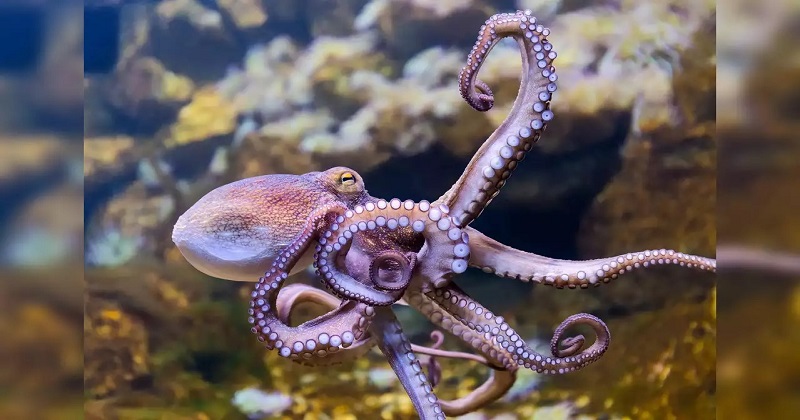
It is something that maritime specialists and ordinary people have understood for a long time. But the cause behind it was never revealed.
Nature is full of fascinating species, as we all know. The octopus is another creature that fascinates researchers. Many people assume they are aliens because of their unusual appearance and behaviours.
Their particular traits, which scientists have thoroughly researched and described, have traditionally distinguished them from other marine animals. However, there is one octopus enigma that researchers have been unable to solve for a long time.
Do you know that after mating, octopuses become self-destructive? Before depositing their eggs, they torment and try to consume themselves. If you were one of the hundreds of individuals who wondered why molluscs torment themselves, scientists now have an answer.
According to recent research published in the journal Current Biology, mother octopuses inflict pain on themselves and even consume themselves as a result of chemical changes that occur around the time they hatch their eggs.
Previously, a 1977 research claimed that self-destruction is caused by a group of glands around the octopus’ eyes. Researchers discovered that the glands released steroid hormones, which might cause octopuses to torment themselves during egglaying.
As per research, three chemical alterations occur at the same moment the mother deposits her eggs. Scientists noted rises in the pregnenolone and progesterone hormone levels as well as 7-dehydrocholesterol.
Also Read: International Tibet Mukti Divas 2022: History and importance
Researchers now believe that a combination of these chemical changes in the body causes octopuses to inflict pain on themselves.
Scientists are still trying to figure out why an octopus’ body undergoes such a radical shift. According to Z. Yan Wang, an assistant professor at the University of Washington, the technique might be a means for octopuses to defend their offspring.

Post Your Comments